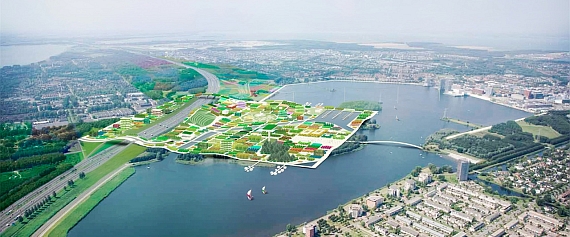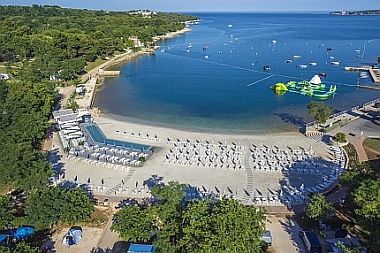
News & Stories
Shanghai. When a still relatively unknown hotel company lists 18 hotels on its home page under the heading "Coming Soon", it generally sounds ambitious. Yet for Greenland International Hotels Group based in Shanghai, it's almost an understatement, as the Austrian Cluster General Manager Arno Nicolussi-Moretto confirmed. Company plans state that by 2020 already more than 100 hotels will be operated under their own brand - under the luxury label Primus Hotels. The company aims to graduate from the list of the biggest 500 companies in the world into the list of the Top 100, and to do this within just five years' time. In China, people think differently, as hospitalityInside author Fred Fettner discovered in an interview with the Austrian Manager.
Munich. The first two days at the Expo Real 2017 Munich knew just one scenario: packed halls, hectic crowds, non-stop meetings and networking to excess. The sector is already breathless, working as if there were no tomorrow. Is this the fear that the bubble is about to burst? Even the experts attending the hotel conference completely denied this was the case. They see no end to the boom, at least not in Germany.
Amsterdam. The city of Amsterdam has too many tourists. To stop the flooding, the municipality is banning all new hotel development and is encouraging investors to check out opportunities in the Amsterdam region. A new strategy has been established to showcase all the assets and qualities that the Amsterdam Metropolitan Region has to offer to attract potential hotel developers. Good timing one would say as many of them are looking for new opportunities. 2017 promises to break a new record in terms of investments.
Frankfurt/Main. German buyers love vacation rental properties. But in which regions and countries they invest, not least depends on the planned investment amount. A study examined the investment behavior of the Germans.
Paris. In order to reassure international tourists, local police have come up with a new label certifying whether a property is secure enough or not. Answering to many criteria already – in a self-evaluation – Louvre Hotels Group is the first chain to secure the certification for ten properties. AccorHotels is supposed to follow.
Zurich. The number of hotels in Zurich is rapidly increasing – and not only in the Limmat metropolis but also in Unterland. Investors see great potential, especially in the low-budget segment. The last hotel opening with the second Motel One in Switzerland boosts this estimation. Next year, the international budget brand B&B will join, and many more have been announced for a long time. The budget chains are making an appearance now because Switzerland has mainly distinguished itself through its numerous hotels in the 4 and 5-star segment so far.
Barcelona. Terrorism seems to have less effect than before on travelers' behavior. From London to Berlin and most recently Barcelona, tourists are showing a certain resilience to terrorism. Hotel bookings and occupancy have remained the same and cancellations only reached single-digit levels. Barcelona has also announced a ban on more hotels from 2019.
Rome. Events are diminishing, but their average attendance as well as the total number of delegates is growing in Italy. Moreover, an increasing share of congresses today is of national and/or international relevance.
Zagreb/Vienna. In the Whitsun week, the last rolls of new turf were still piled up at the completely refurbished Girandella Resort in Rabac. There, guests were already being given the red carpet treatment. And with success: Booked out! Valamar Hotels reflects the current boom on the Croatian market. Valamar Riviera AG invested 873 million kuna in 2016, primarily in the refurbishment of its hotel product. For 2017, it plans to invest a further 704 million kuna, as the Supervisory Board confirms. The persistent demand boom in Croatia has reduced the risk for the investment.
Bellevue/Washington. Airbnb is gaining ground among business travelers. Soon, the rental platform's listings will be shown among major hotel chains like Marriott or Hilton on Concur's online booking tool.




